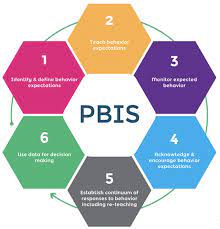Positive Behavioral Interventions and Supports (PBIS) is an evidence-based framework aimed at improving and integrating all of the data, systems, and practices affecting student outcomes every day. It’s a way to support everyone – from students to teachers to administrators – to create positive, predictable, safe environments where everyone has an opportunity to thrive.
Born out of the broader field of behavior analysis, PBIS applies a tiered system of support to cater to all students’ needs. Its implementation typically involves several critical elements that structure it distinctly from other behavior management strategies:
1. Prevention-focused: Its foundation is to prevent behavioral issues before they occur.
2. Instructional approach to discipline: Students are taught expected behaviors and provided with regular acknowledgements for displaying them.
3. Data-driven decision making: Decisions are based on data about student behavior and its context, which helps identify needed supports.
4. Systems perspective: Change happens not just at the individual student level but across classrooms, schools, districts, and even states — wherever the framework is applied.
5. Continuum of interventions: The supports range from school-wide interventions for all students (Tier 1) to targeted group interventions for some students (Tier 2) to intensive individualized interventions for a few students (Tier 3).
6. Inclusivity: PBIS values diversity and equity with practices that acknowledge and respect the inherent worth of all students.
Implementation of PBIS often requires extensive staff training and ongoing coaching. Schools adopting PBIS can expect a reduction in problem behavior, an improved school climate, more effective teaching time, better student learning outcomes, and other large-scale organizational changes.
At its core, PBis prioritizes a positive school culture where positive behavior is taught and reinforced in all school settings because it understands the significant influence the environment has on an individual’s behavior. It underpins its practices with research showing that when academics and behavior are integrated within a school’s fabric, students achieve better socially and academically.
Through PBIS practices are tailored according to cultural context and individual needs within the school community. It moves beyond individual student-teacher interactions to include larger systemic factors that contribute to a student’s ability to succeed in the learning environment.
In essence, PBIS works as more than just a program or a policy; it represents a fundamental shift in how educators ensure learning environments are conducive for all students’ success by being responsive to behavioral needs.





